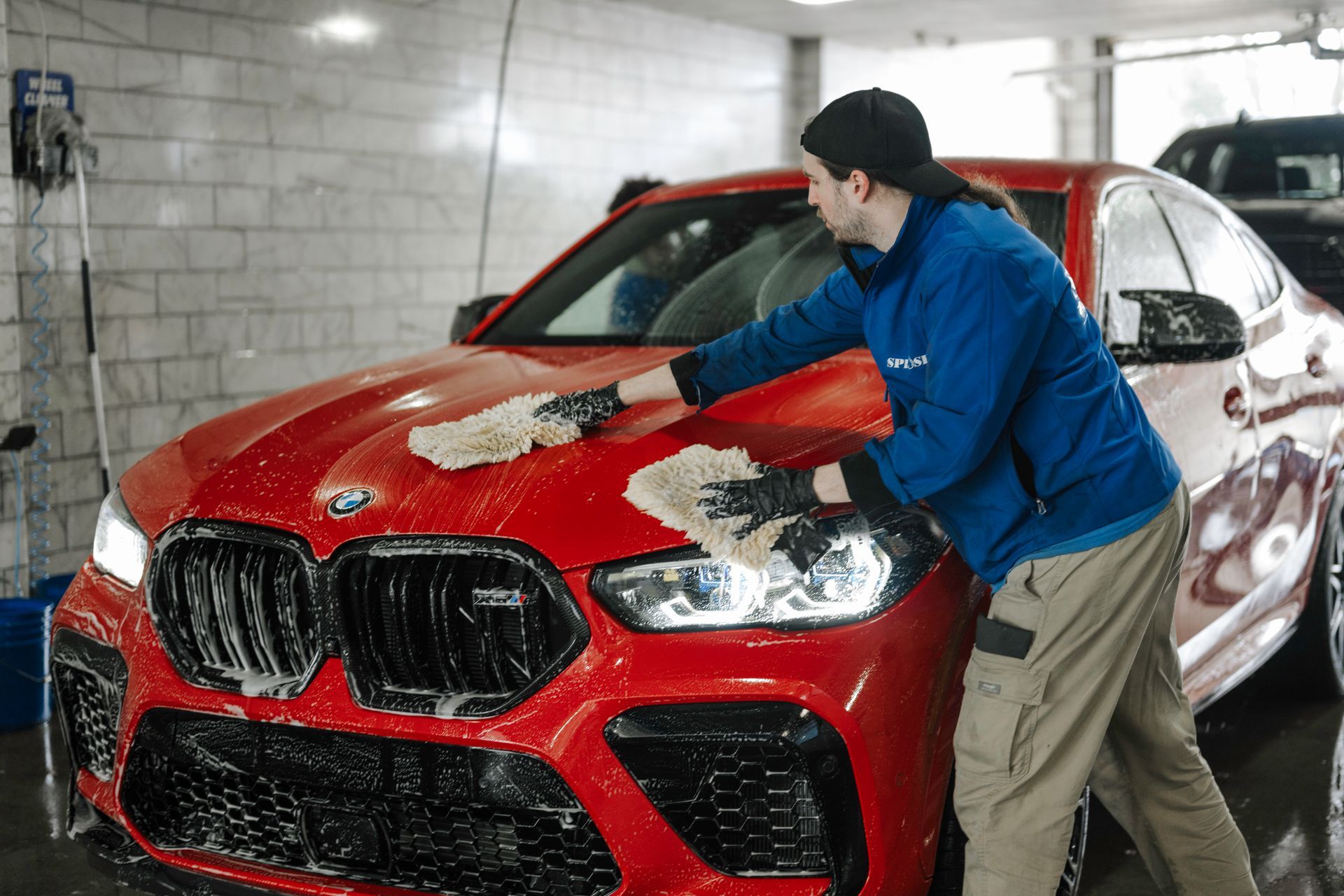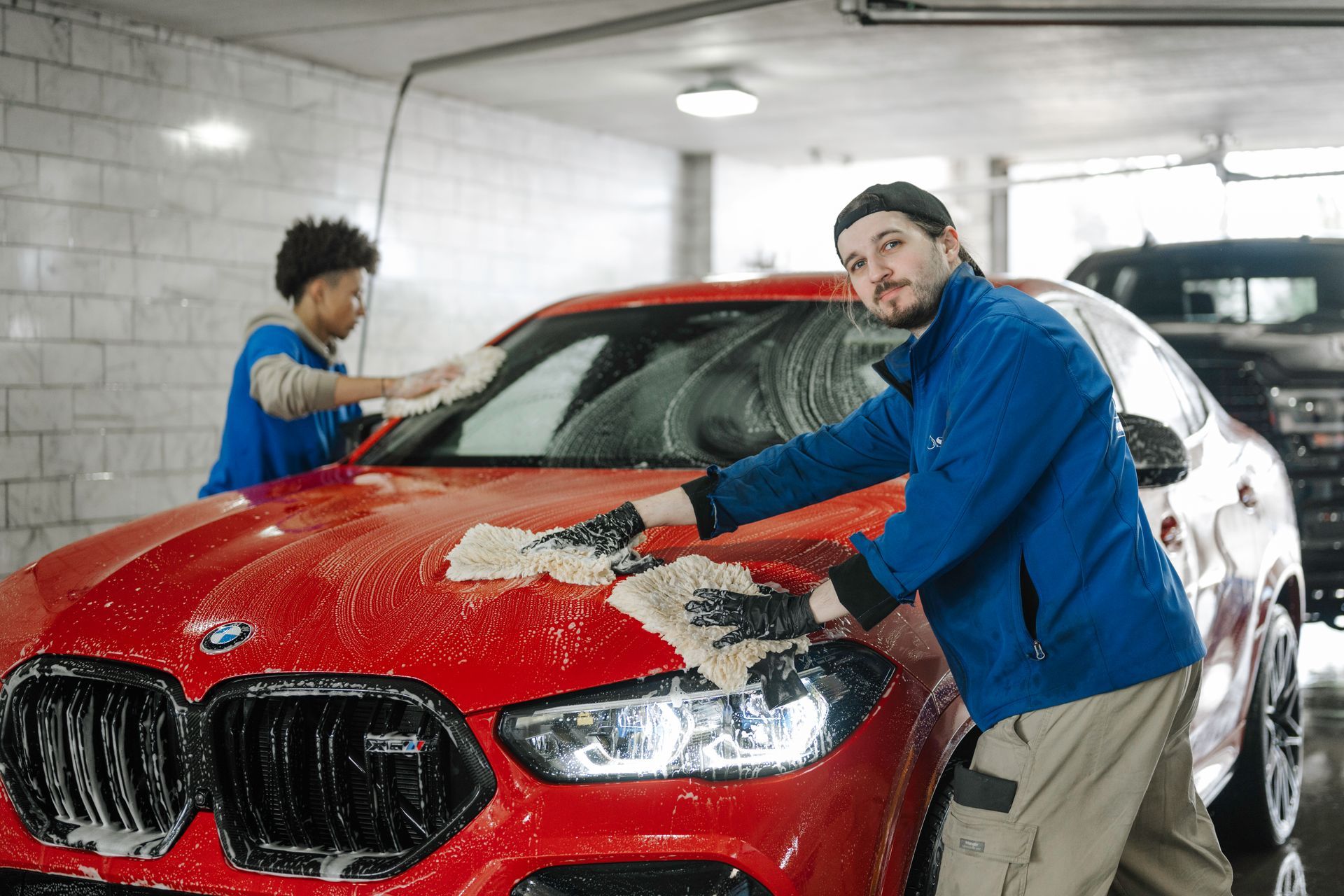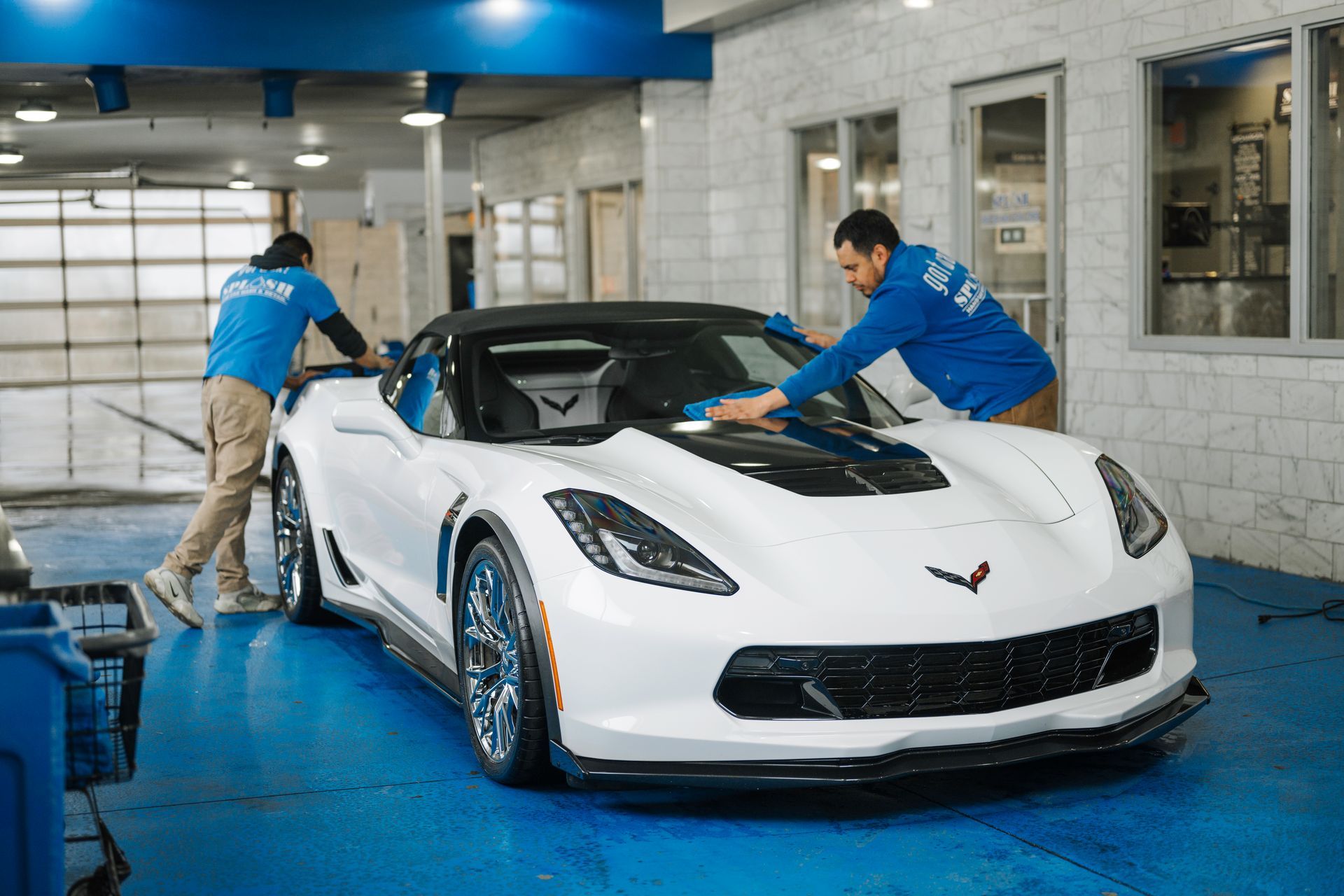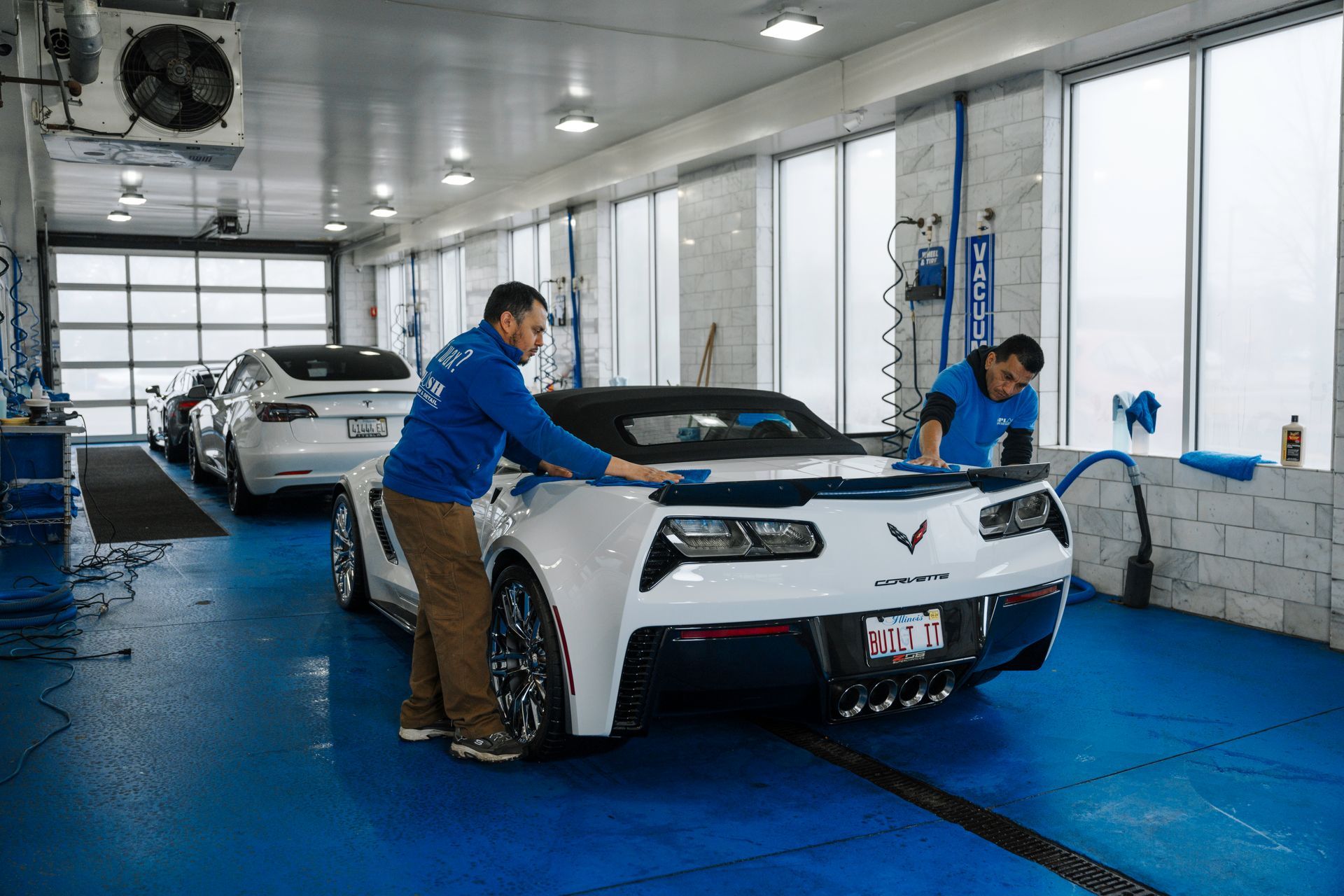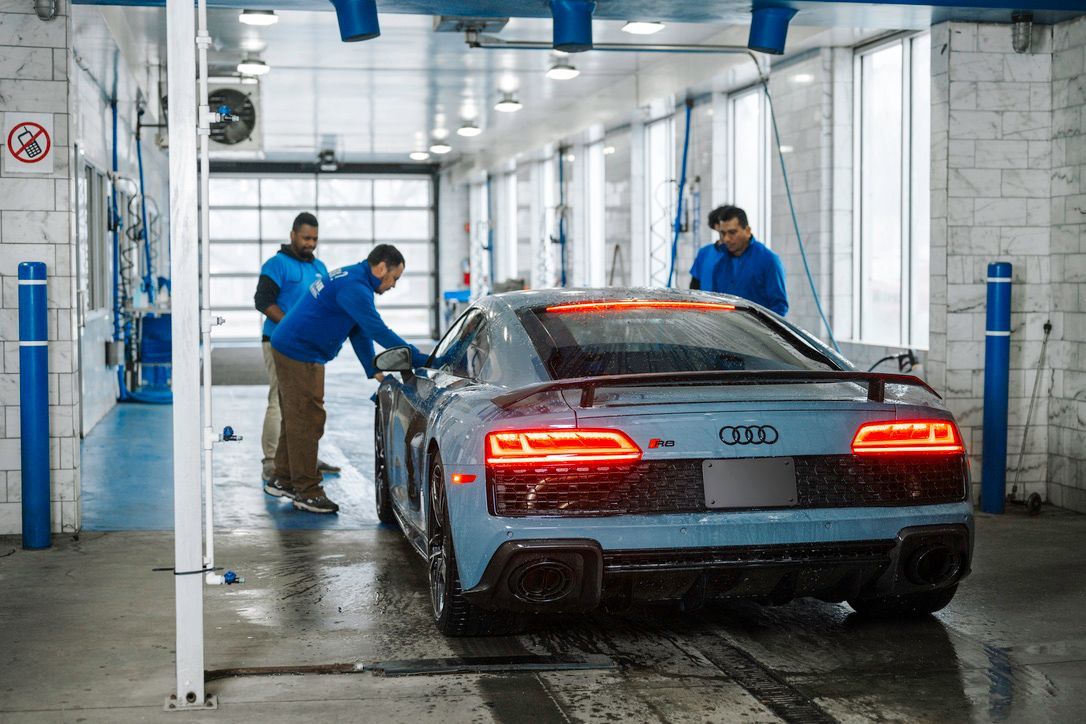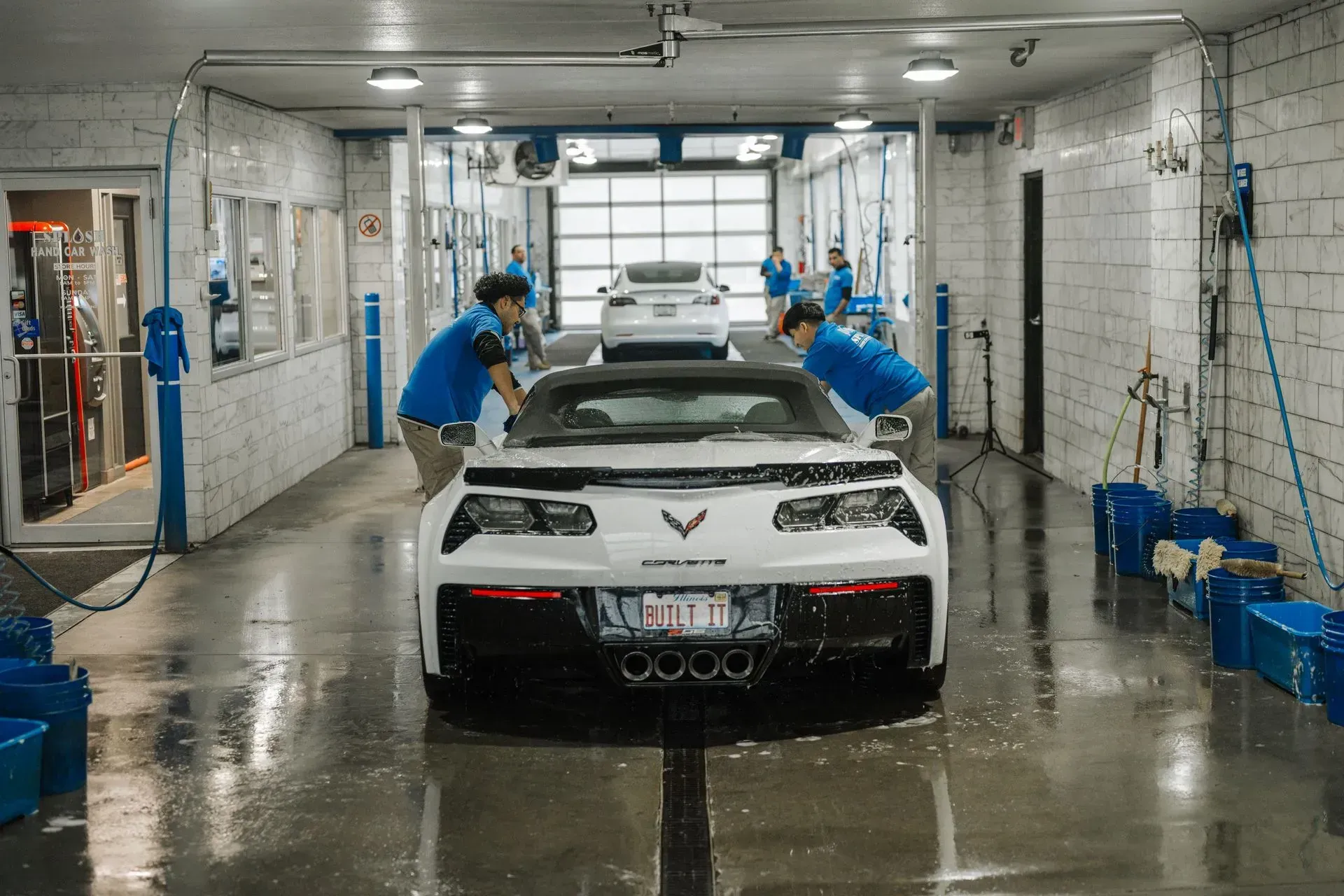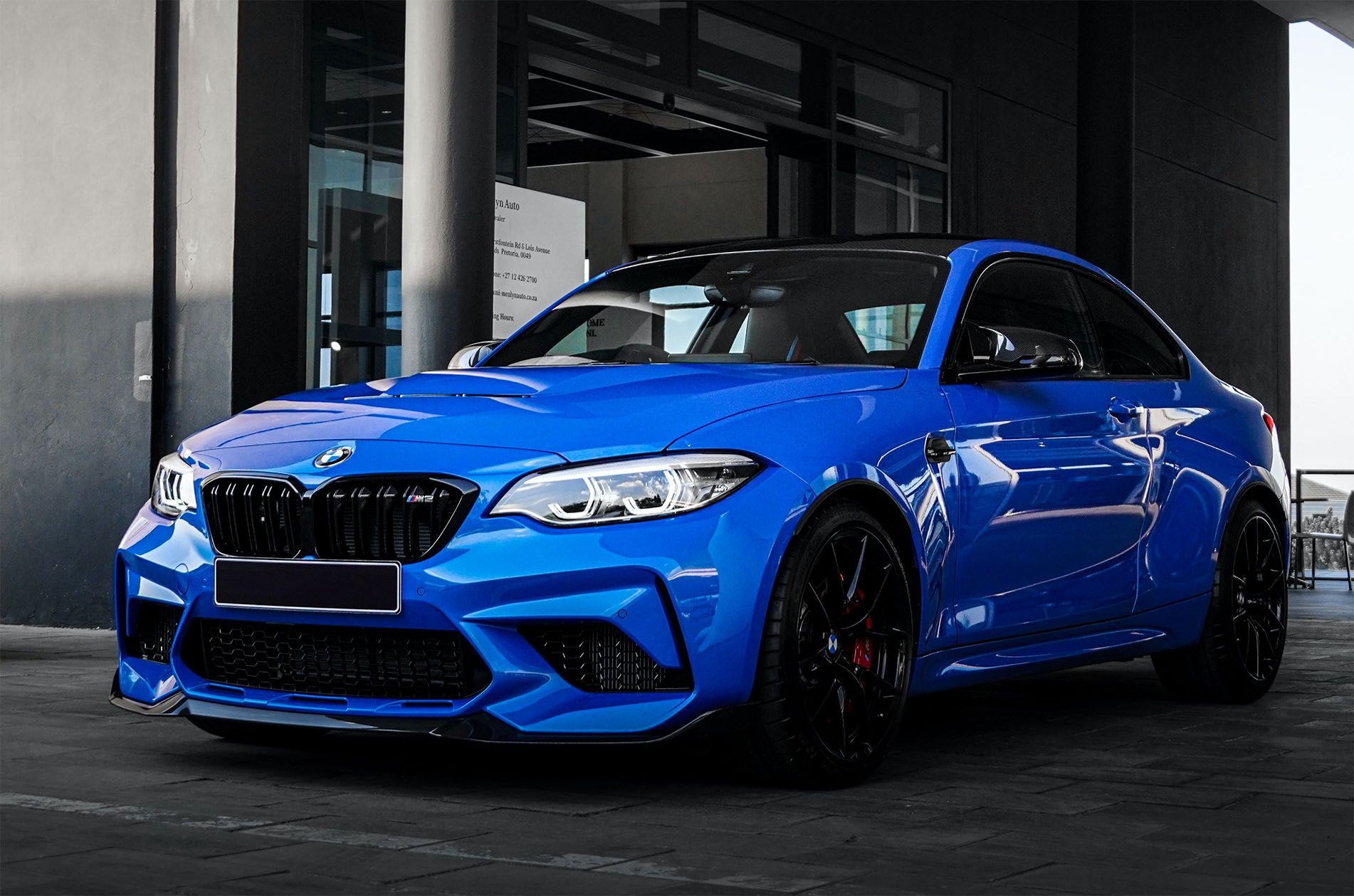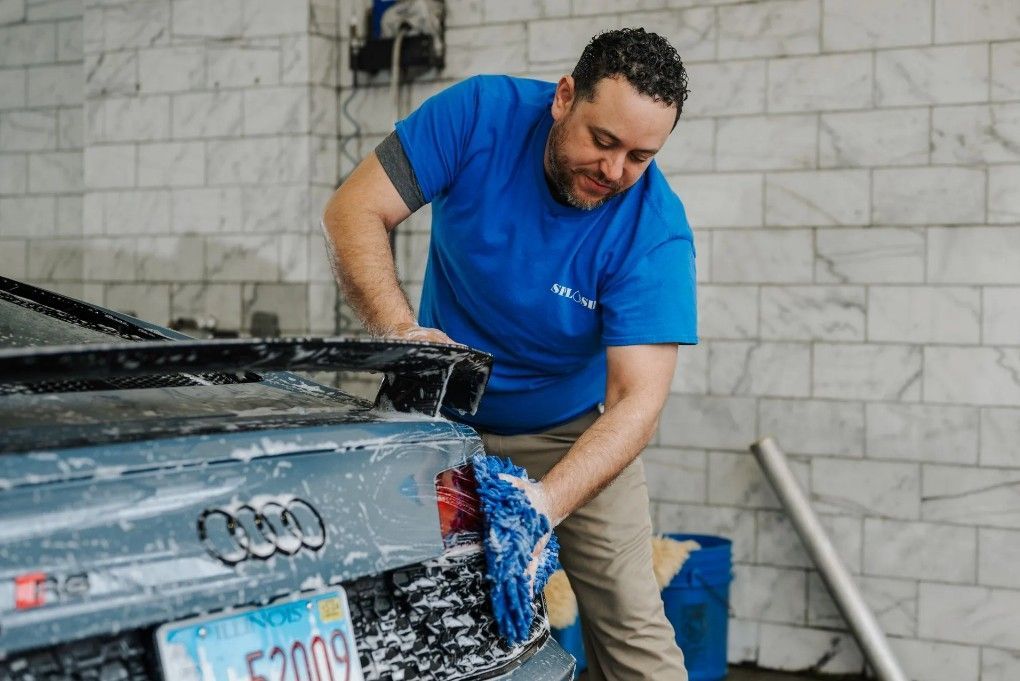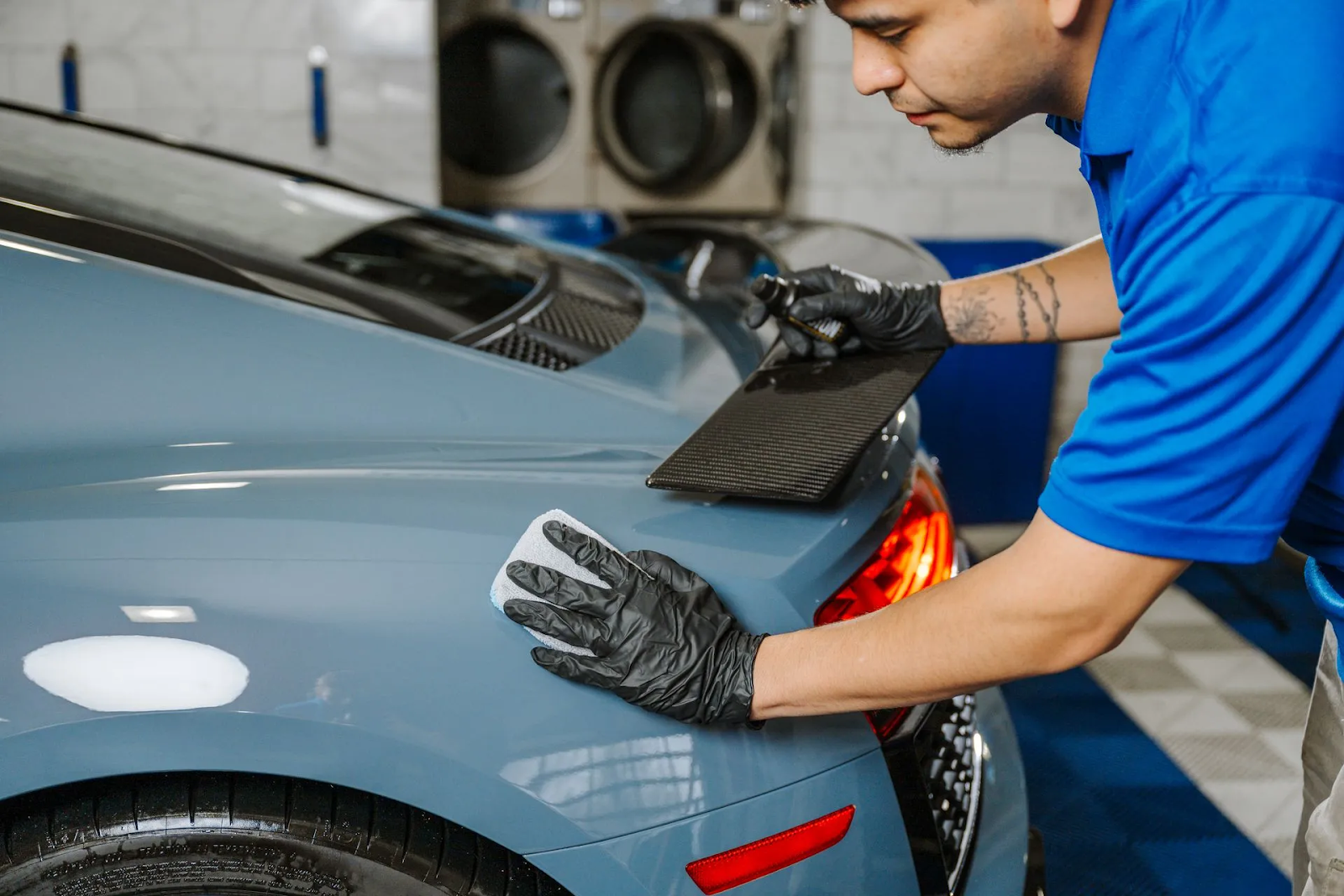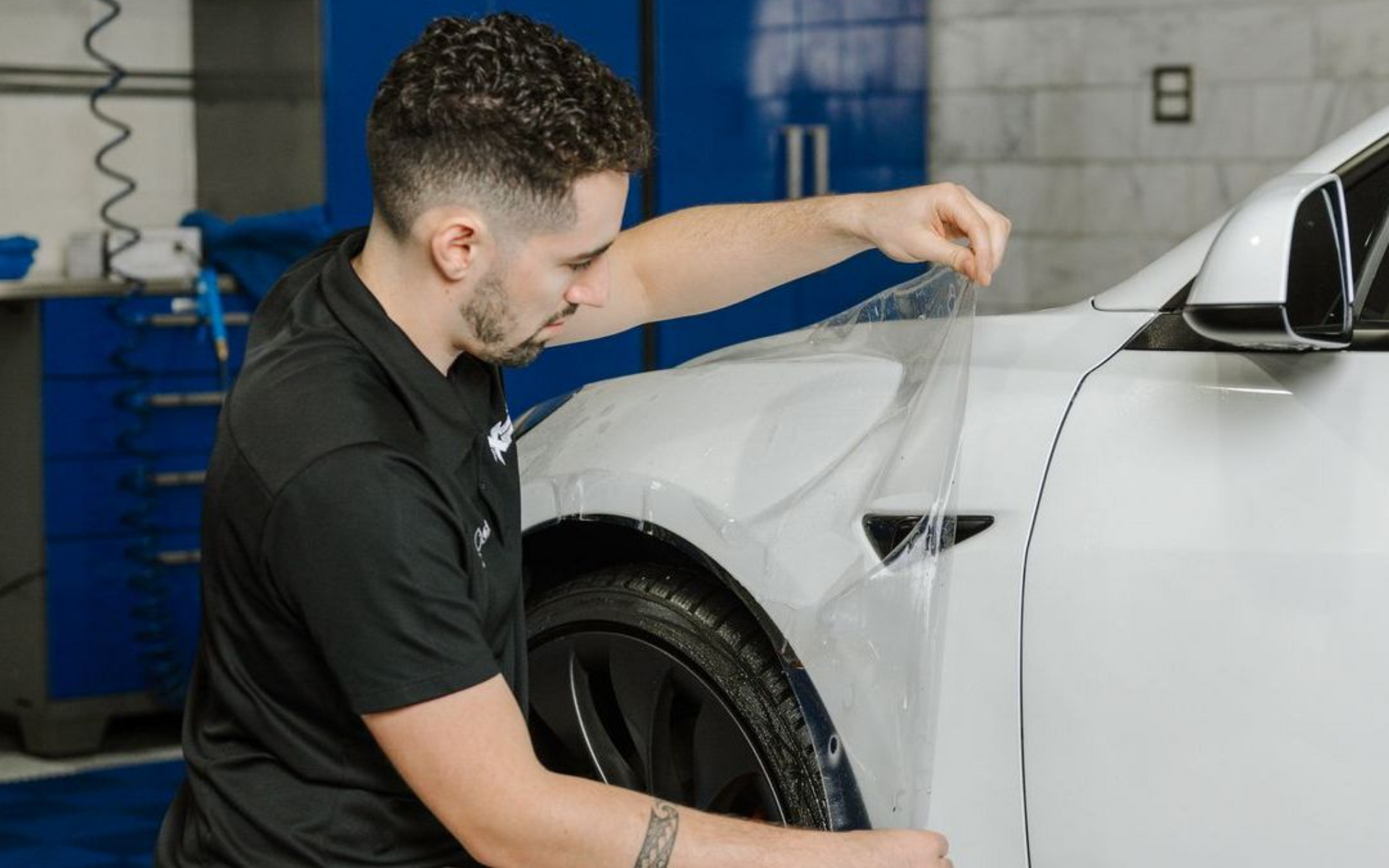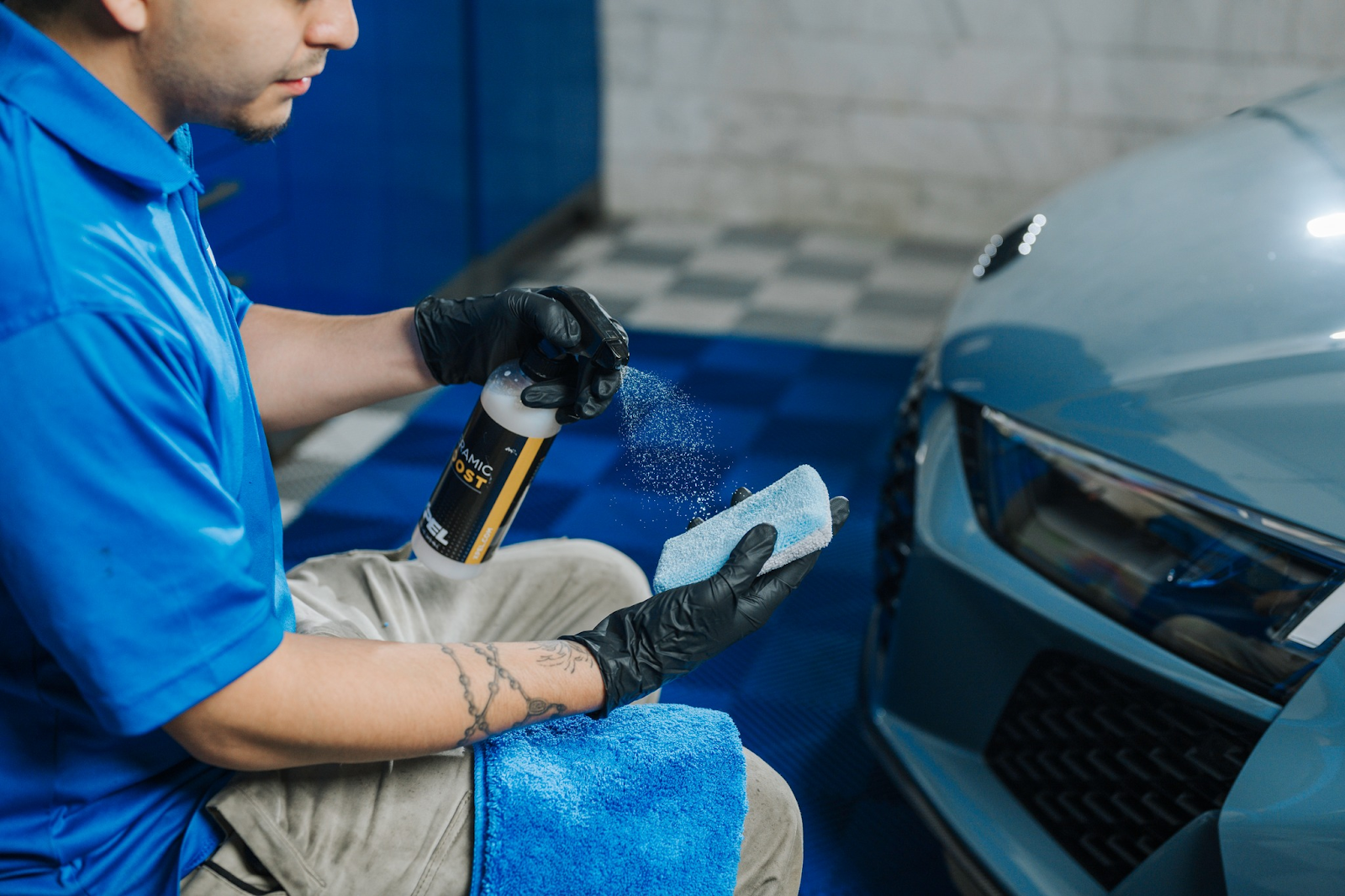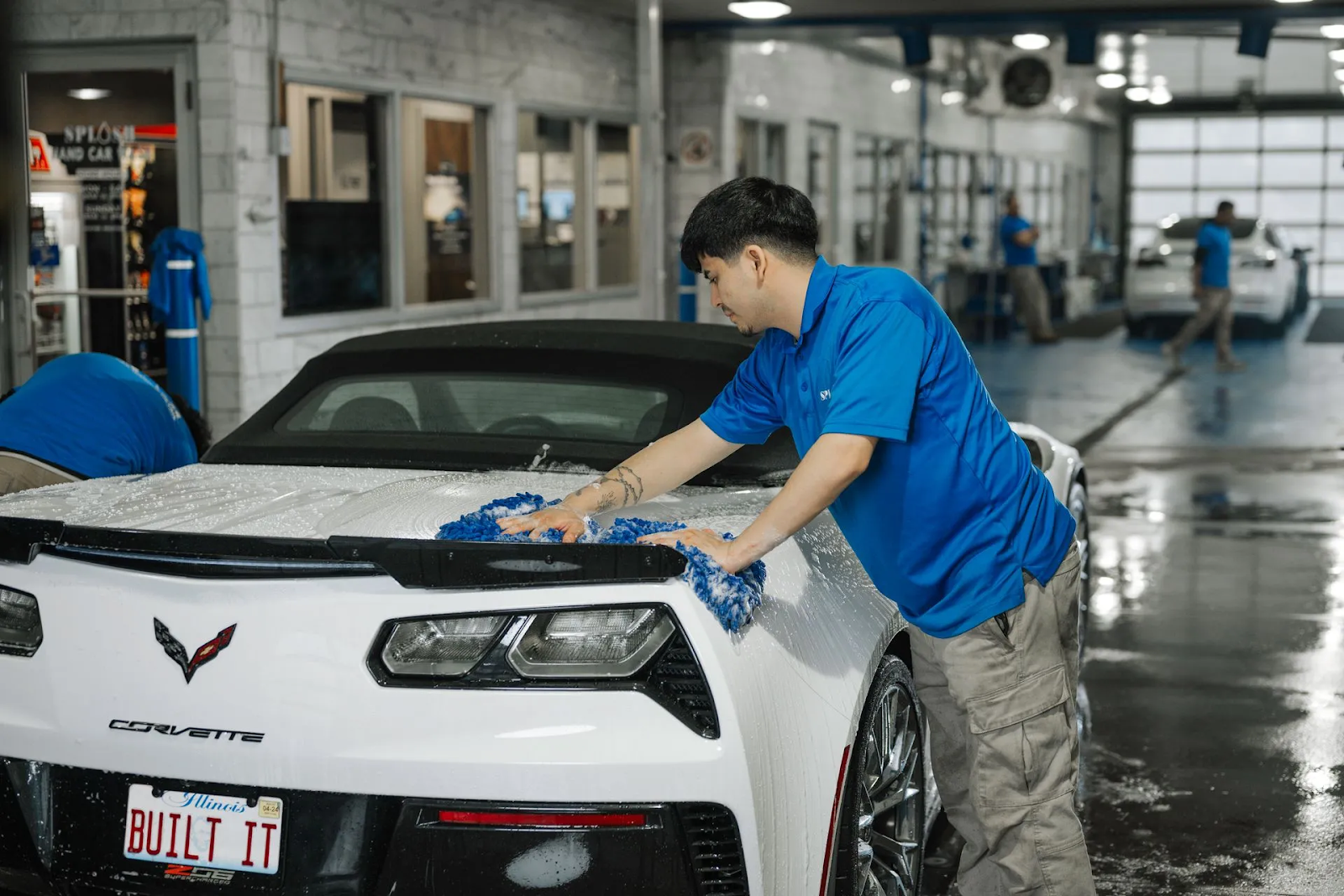When it comes to maintaining the cleanliness and appearance of your vehicle, drivers are often faced with an important decision: opt for the convenience of an automatic car wash or dedicate a bit more time to a professional hand wash. While this choice may appear minor, the impact can be substantial. A hand car wash offers a more meticulous cleaning process and ensures that your vehicle receives the attention and care it deserves.
Choosing a hand car wash over an automatic one provides greater control and precision in the cleaning process, minimizing the risk of scratches and swirls that can occur from harsher brushes. Additionally, hand washing typically uses gentler cleaning solutions and materials, ensuring better protection for your vehicle's paint finish while achieving a more thorough clean, especially in hard-to-reach areas.
Why Hand Car Washes Stand Out
One of the standout features of hand car washes is the level of precision they offer. When you entrust your vehicle to someone doing a manual wash, you benefit from their focus on specific areas that may be prone to dirt buildup or require extra care. For instance, around wheel wells and intricate crevices, where automatic washes usually fall short, a dedicated hand washer can wipe away grime that would otherwise remain unnoticed. This tailored approach results in a cleaner vehicle and preserves the paint, minimizing the risk of scratches or swirls that can occur with harsher automated methods. Hand washes typically utilize softer materials like microfiber cloths, which are less abrasive than the brushes found in many automatic systems. This implies that they will thoroughly clean your car while minimizing the likelihood of surface scratches. In fact, many professional detailers emphasize that proper tools and techniques during a hand wash can help maintain your car's clear coat for longer periods. By avoiding harsh chemicals and using gentler cleaning solutions, your protective wax or sealant layers remain intact, resulting in a finish that's not only clean but also well-protected.
Furthermore, let's consider how the process allows for an enriching experience—not just a chore. Many car enthusiasts find washing their cars by hand to be quite therapeutic. It becomes an opportunity to bond with their vehicles and ensure each part is receiving the attention it deserves. The satisfaction derived from meticulously washing every inch of your car is unmatched; you know your vehicle better than anyone else. With every rinse and polish, you're prolonging its life and fostering stewardship over your investment—something hard to replicate at an automatic car wash. Lastly, we should highlight the flexibility offered by handwashing. Unlike most automated washes, which operate on set cycles and may leave you waiting in line longer than you'd like, hand washing gives you control over both timing and technique. You can choose when to wash your car and how thorough you want to be. Not only do you save time if you're efficient with it, but regular hand washing allows for consistent small maintenance sessions—ensuring potential issues are addressed before they escalate into costly repairs.
Attention to Detail and Thorough Cleaning
Hand car washes excel in delivering the kind of careful attention to detail that automated systems often lack. Instead of relying on a standardized cleaning cycle, professional technicians carefully assess each vehicle’s unique needs. They are trained to identify areas where dirt and contaminants accumulate—such as around emblems, grilles, and wheel wells—and use specialized tools and solvents to address them effectively. For example, stubborn substances like tar or tree sap are treated with precision techniques that automatic washes cannot replicate. This elevated level of care results in a more thorough clean, often restoring the vehicle’s appearance to a near-showroom condition and contributing to long-term preservation of the exterior finish.
When we compare handwashing to receiving a tailored suit, it becomes clear how unique attention can significantly enhance quality. However, it's not only about what’s visible; it's also about maintaining the integrity of your vehicle’s surfaces. In just five minutes at an automated wash, you may miss crucial spots like door jambs or undercarriage areas, where dirt can accumulate without your knowledge. In contrast, skilled technicians meticulously check these areas during a hand wash, ensuring nothing is overlooked. This thoughtful approach directly correlates with prolonging your vehicle's life and preserving its resale value. While it might be tempting to opt for convenience in our fast-paced lives, recognizing the value in dedicated care for your vehicle can yield long-term benefits.
Skilled Technicians and Quality Results
When you bring your car in for a hand wash, skilled technicians are like artists shaping a fine sculpture, bringing their expertise and precision to every inch of your vehicle. These professionals possess a keen eye for detail, knowing exactly where dirt likes to hide—be it in crevices or around the wheel wells. This kind of attention isn't just about aesthetics; it's about enhancing the longevity of your vehicle and preventing potential issues before they escalate. During a wash, they might notice flaking paint or signs of oxidation that you may miss—problems that can lead to significant repair costs down the road. Unlike automatic car washes where machines handle everything, these technicians understand vehicle materials and specific needs based on makes and models, allowing them to tailor their approach. By using gentler cleaning solutions and softer tools like microfiber cloths, they significantly reduce the risk of damaging delicate surfaces. It’s this human touch that preserves the lustrous finish that makes your car stand out.
As trained technicians work on your vehicle, they often take the opportunity to communicate any observations or recommendations, such as the presence of chemical residue or the potential benefits of specialized waxing treatments—details that are frequently missed by automated systems. This creates a more collaborative relationship between technician and customer, offering tailored advice for ongoing vehicle maintenance. Such interactions not only contribute to a cleaner, well-preserved vehicle but also enhance the owner's understanding of its condition. The insight provided by skilled professionals goes beyond immediate cosmetic improvements; it fosters informed decision-making about long-term care strategies. Their ability to detect minor imperfections, suggest preventative measures, and explain best practices empowers vehicle owners with practical knowledge. This expert-driven approach ensures both high-quality results and a deeper appreciation of how maintenance routines influence the overall condition and longevity of automotive surfaces.
Benefits to Car Surfaces
Hand car washes are incredibly gentle on your car's exterior, which translates to fewer micro-scratches and swirl marks that often plague vehicles washed in automatic facilities. Micro-scratches are those stealthy little lines that creep up on you over time, making your once-pristine paint job look dull and worn. In contrast, a skilled washing process using soft materials can mitigate these issues significantly. The equipment used in automatic washes can be quite aggressive. Most employ rotating brushes or abrasive cloths, which may unintentionally transfer dirt particles from one vehicle to another, effectively introducing tiny scratches onto your car. Hand washers, however, often utilize fresh, clean microfiber towels specifically designated for each wash. This provides a smooth touch and significantly reduces the chance of damage by avoiding cross-contamination from previous washes.
It’s important to note that maintaining a vehicle's paint integrity is not just about keeping it shiny; it’s about enhancing its longevity and retaining its value over the years. Furthermore, hand washing allows for an optimized approach to removing tough contaminants like tree sap, bird droppings, or road tar that can etch into the paint if left untreated. This method isn't just about aesthetics; it's also about preventive maintenance. Users have reported improvement in surface cleanliness when employing a thorough hand-washing process compared to quick automated solutions. You might even opt for additional treatments during your hand wash—using high-quality wax or sealants can enhance protection against environmental elements. Interestingly, users observed an extended shine with hand washing due to this tailored application of protective coatings. This fosters a profound bond with your vehicle through meticulous care. Regular hand washes every 1-2 weeks can ensure that your car looks its best while protecting the delicate layers of paint underneath. This level of care maintains curb appeal for potential buyers should you decide to sell down the line.
Personalized Services Like Waxing
Hand car washes offer an array of personalized services specifically designed to enhance the appearance and longevity of your vehicle. Among these, waxing stands out as a crucial step. Not only does it protect the paint from environmental factors, but it also provides that coveted glossy finish that makes your car look as if it just rolled off the showroom floor. The beauty of having waxing performed by hand allows for a keen eye for detail; each application can be assessed and adjusted in real-time, ensuring an even coat without missing any spots. Waxing is just one aspect of these specialized services. A clay bar treatment, for instance, is another excellent way to maintain your vehicle's exterior. This method involves using a malleable substance to remove embedded contaminants on the paint surface, such as dirt and old wax. Think of it like exfoliating your skin—getting rid of impurities makes everything feel smoother and look fresher.
The result transforms dull surfaces into vibrant exteriors, creating a noticeable difference you can see and feel. Beyond exterior treatments, personalized services also cater to the interior of your vehicle. Interior detailing is integral to maintaining a clean and comfortable driving environment. This service often includes vacuuming every nook and cranny to remove dirt and debris, cleaning the dashboard, and conditioning leather seats. When seats are conditioned properly, they look great and retain their integrity over time. This preventive measure is especially important in harsh climates where materials can crack or fade due to exposure.
Cost Comparison: Hand vs. Automatic
Understanding the financial implications of car washes can feel overwhelming, but breaking it down helps illuminate the key differences. Hand car washes typically come with a price tag of $25 to $40 per wash. While these services might seem pricier than their automatic counterparts, which can range from $6 to $15, consider what you’re actually paying for. You might pay more upfront, but think of it as an investment in your vehicle's longevity and aesthetic appeal. At first glance, those numbers suggest that automatic washes are much more economical. However, frequent use of conveyor systems with stiff brushes can lead to micro-scratches on your paint—damage that not only dulls your vehicle's shine but also diminishes its resale value over time.
In fact, vehicles maintained with regular hand washes can retain more of their value over five years compared to those treated with automatic washes. This means that while you might pay less per wash in the short term when choosing automatics, it could ultimately cost you more when it’s time to sell or trade in your vehicle. Weighing both immediate expenses and long-term impacts provides a clearer picture: investing in hand car washes not only enhances the immediate appearance and cleanliness of your car but also positively contributes to its future value, making it an overall smart choice.
In summary, choosing a hand car wash proves beneficial not just in terms of appearance but also for maintaining your vehicle's worth over time. It may require a slightly higher investment initially, but the long-term advantages certainly outweigh the costs.
Exceptional Hand Car Wash Services in Libertyville, IL
Treat your vehicle to the care it truly deserves with Splash Hand Car Wash’s
premier hand wash services in Libertyville, IL. Unlike quick automated systems, our expert technicians provide personalized, thorough cleaning that reaches every curve and crevice of your vehicle—ensuring a spotless finish with attention to the finest details. From removing stubborn residue to preserving your paint’s integrity, each wash is performed with professional-grade tools and techniques designed to protect your investment. Experience the difference that precision and care can make—schedule your visitwith Splash Hand Car Wash today!

